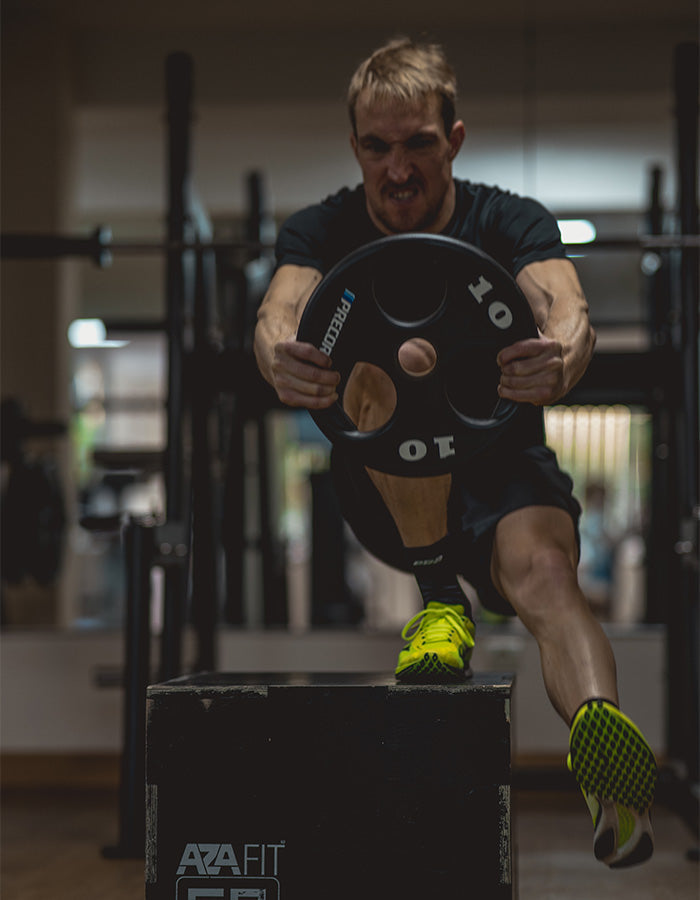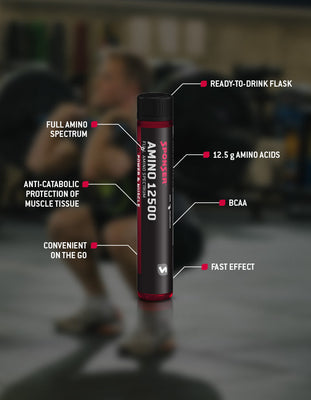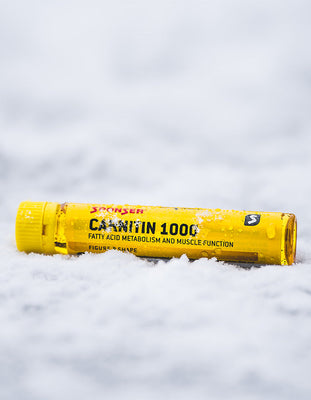
Photo credit: Samuel Hürzeler
Supplementation with amino acids: which athletes benefit?
The load determines whether the intake of amino acids is appropriate. This is primarily the case where there is a strong muscular strain. Typically, this is the case with eccentric movements (running downhill, etc.), which have an increased catabolic (muscle-degrading) effect, or with high-intensity work such as throwing, pushing, sprinting. But also very long endurance activities increasingly strain the reserves of the body's amino acid pool. A targeted supplementation with specific amino acids taken close to the workload can counteract this.
Why does the separate intake of amino acids in sport make sense?
In contrast to intact proteins, which must first be broken down, amino acids are hardly a burden on the digestive system. They are metabolised very quickly and easily absorbed. With BCAAs (especially leucine), the anabolic stimulus of protein can be enhanced, while taking a product with a complete essential amino acid profile can reduce total protein requirements and thus calorie intake. This is often desirable in relation to body weight or in weight class sports. Glutamine, the most abundant amino acid in the body, supports the intestinal flora and accelerates the regeneration of glycogen stores.
When are amino acids ideally taken in relation to athletic performance?
Free amino acids and peptides (short chains of amino acids) primarily serve to shorten the transition phase between the catabolic phase (which inevitably occurs after physical exertion) and the anabolic phase (which builds muscle and other structures). Amino acids as well as peptides should therefore be taken specifically and timed to coincide with exercise, as unlike intact proteins they are completely digested and disappear from the blood after around 60-90 minutes. In practice, this means: relatively shortly before and after or already during long exertion.
Related articles
overview
» amino acids by SPONSER
on
» amino acids
shop
» power & muscle
Supplementation mit Aminosäuren – welche Sportler profitieren?


















